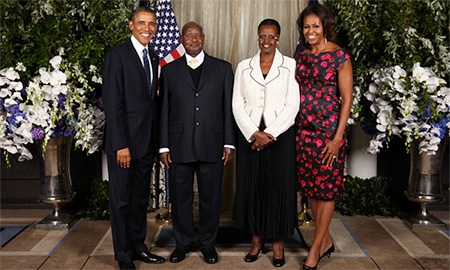The discovery of oil and gas reserves in Uganda has helped the East African nation to develop into a key territory in one of the world’s fastest growing economic regions. Building on these industries is now at the cornerstone of Uganda’s expansion plans as it seeks to exploit its natural resources to improve both the social and economic fortunes of its citizens. While agriculture has traditionally been a mainstay for the nation’s economy, the discovery of such natural resources has more recently provided Uganda with an impetus to drive forward economic improvements.
Developing the oil and gas industry further remains key to Uganda’s future, and the industries lie behind the country’s current National Development Plan, which aims to improve prospects by building better transport links, improving electricity supplies, and developing a network of effective pipeline delivery systems.
At the heart of much of this development has been a largely stable and secure political environment under President Yoweri Kaguta Museveni and the ruling National Resistance Movement. Democracy first arrived in the former British colony in 1986, but it is more recent investments in infrastructure and market reforms that have enabled Uganda to become an economic force in the region.
“One of the things that Uganda has done to make it grow so rapidly is to improve its policy framework,” says Oliver Wonekha, Ugandan Ambassador to the U.S. “The country has very sound macroeconomic policies. The liberalization of the economy has been followed by a stronger emphasis on private sector-led growth and the expansion of markets through regional integration.”
“Sectors are clear, and profitability is high. The internal rate of return in Africa, compared to Europe or Asia, is high. I don’t want people to come here to lose money; they must come here to make money”
Yoweri kaguta Museveni,
President of Uganda |
Recent reforms of Uganda’s economic systems include the creation of markets for foreign exchange and stocks, which have helped to bolster confidence in the country as a place for investment and attract foreign business interests.
Allied to this has been the creation of the Power Africa Initiative (PAI) and Trade Africa Initiative (TAI), which have strengthened ties between the American and African continents. Ms. Wonekha says the partnerships have opened up new avenues for investors, particularly in road, rail and water transportation, oil and gas exploration and extraction, and also with the development of new electrical and hydropower installations. Firms such as the China National Offshore Oil Corporation (CNOOC), Total, and Tullow Oil are all currently in discussions with Ugandan authorities to expand their business operations in the country.
Pre-existing investments have already helped to transform Uganda’s economic make-up, with the agricultural sector now constituting 45% of the country’s GDP, down from 85%.
In its place has been a huge growth spurt in the services industries, which have ratcheted up their contribution to the country’s GDP as both oil and gas exploration has increased.
Agriculture remains an important sector in Uganda, however, and one targeted for more growth by the country’s government, with the 4 million bags of coffee produced each year providing one of the country’s greatest sources of employment. Future plans have been targeted to ramp up exports four-fold, in order to compete with the likes of major producers such as Brazil.
These aims are part of plans to deliver a diversified and stable economy, something the country’s Prime Minister Amama Mbabazi says is central to the country’s future expansion.
“Recent oil developments are good, but it should not keep us from having to diversify the economy,” he says. “This requires more training programs, solutions to current energy issues, and a willingness to open the market further. Wealth derived from oil provides us with the perfect opportunity to do all that and diversify the economy. It allows us to invest in industry so that we have employment for our people.”
Uganda’s agriculture, oil, and gas industries are not the only areas providing possibilities for investors, with diverse sectors ranging from tourism to gold, phosphate and diamond mining all providing opportunities.
“We have plenty of tourist attractions,” says Mr. Museveni. “We have wildlife and nature paths, mountains, gorillas, and we have the resources for tourism attraction. The missing link was security, which is there now, and the other thing is infrastructure and accessibility to tourist areas.”
The Prime Minister is also focusing his attention on developing the country’s manufacturing industries, to ensure the raw materials produced – including the aforementioned Ugandan coffee and other products such as cotton – are not simply grown in the country but processed and then exported for added value.
“We need to do more manufacturing and build more factories,” says Mr. Museveni. “Now, we still have the problem of exporting raw materials. That is a big problem, because, on the one hand you get less money, and on the other hand you export jobs. If I export cotton unprocessed, that means the jobs for spinning, weaving, and making garments are all exported. That is our second big problem. We need more factories to add value to the raw materials; we need industrialization.”
With returns on investment projected at 6% to 7%, that target seems as if it could soon be within Uganda’s grasp. Ambassador Wonekha says the nation intends to be a middle-income country by 2017 and a first-world country by 2050, and it is clear that Uganda is now keen to embrace further investments to make the most of the favorable market conditions it has created.

0 COMMENTS